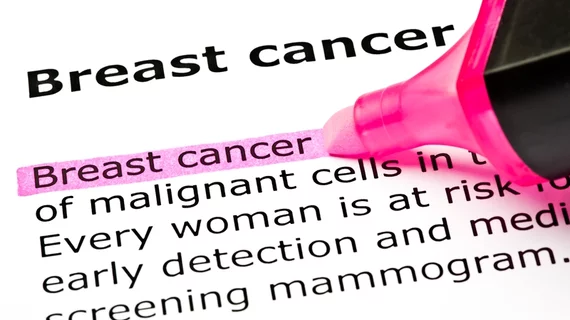Up to 15% of breast cancer mastectomy patients need future imaging, biopsy
Many breast cancer patients opt for mastectomy believing they won’t require future imaging or biopsy. New research published in the Annals of Surgical Oncology found that is not always the case.
“Autonomy and choice in treatment are encouraged, and can be empowering for patients. But decision-making can also result in anxiety, fear, and distress,” said lead author Soojin Ahn, MD, in a statement. “Some patients might choose more extensive surgery with the hope that this will reduce the need for breast imaging and biopsy later, when in fact this is not necessarily the medically beneficial course."
Ahn and colleagues retrospectively reviewed 185 unilateral mastectomy and 200 bilateral mastectomy cases performed between 2009 and 2015 at the Mount Sinai Hospital’s Dubin Breast Center in New York. The average follow-up time was 30 days.
Of the total unilateral patients, 19 underwent ultrasound for “concerning” exam findings, 11 received biopsy and two patients demonstrated malignant findings, according to the study. Out of the bilateral group, 31 needed imaging, 16 required biopsies. Additionally, 16 of those biopsies were done on the same side as the previous cancer.
Overall, Ahn et al. found 10 to 15.5 percent of unilateral or bilateral mastectomy patients require further imaging, with six to eight percent eventually undergoing biopsy. Although the malignancy rate was one percent, authors noted enough cases were found to decide mastectomies do not completely eradicate the need for imaging and biopsy.
“This information is critical for patient understanding and decision-making,” Elisa Port, MD, and chief of breast surgery and co-director at the Dubin center, said in the same statement. “Physicians and their patients should make their surgical treatment decisions after careful consideration of various clinical factors and realistic expectations for post-operative follow up.”

